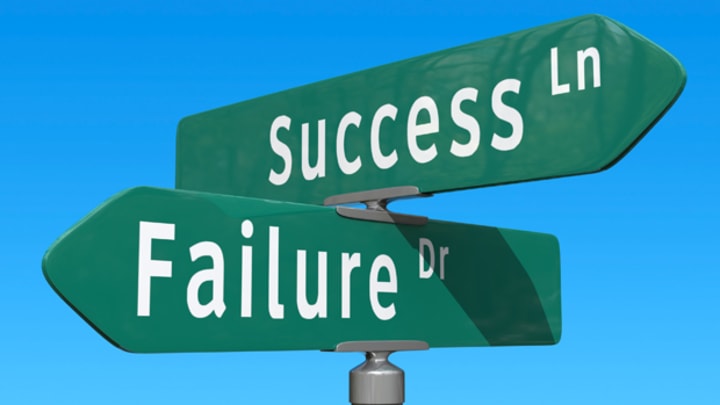
Source: Google Image
What to expect
- 4 failed compaies from 90s
- 4 Learning from those enterprises
The greatest enterprise of today usually come from the 90s, for example, apple, google, facebook etc.
While studying the environment of that period I understood that era was a time of hubris: people believed in going high. Unfortunately, Too few startups were actually getting there, and many never went beyond talking about it.
Here is few big name from that era..
Hitachi
Many articles have been written in Japanese about failed Japanese tech companies. The company was established in 1910 by Namihei Odaira, a successful electrical engineer. This company was behind the production of Japan's first 5-horsepower electric induction motor.
Hitachi became one of the Japanese giants who once ruled the world. Now this same company is in deep trouble, fading from the limelight and losing billions of dollars per year.
Compaq
In the 1980s, purchasing a basic Compaq desktop computer was a status symbol of going digital. The company spent many years developing their own proprietary components and drivers. They wanted to make their computer desktops and laptops premium products.
This move annoyed their competitors who regarded Compaq machines as useless products compared to their own. When the company couldn't stand the competition, the owners sold it to another to another troubled company, Hewlett-Packard. HP could not work magic on Compaq machines and ditched the brand.
America Online
In the mid-'90s, there were only two ways that average household could use the Internet. They used either Trumpet Winsock or America Online, commonly known as AOL. The latter was on top of the world before the introduction of Microsoft's MSN service in 2000.
Then what happened? AOL turned out to be scared of getting shut out of Microsoft's Windows 95 desktop. They feared that they could lose their new customers to MSN services and they also failed to come up with a coherent broadband strategy. Both of these turned out to be fatal flaws in it's ISP business, but luckily it has since prospered in the online media space.
Atari
Less heard in todays world, Atari, it was one of the best video game consoles released in 1972. The company's only competitor by then was Intellivision; also a home video game console released by an American multi-national toy company - Mattel, Inc.
Atari received significant competition from Intellivision, which was believed to have inept marketing power and vast technological superiority. Instead of dealing with its competitors in a positive way, say maybe up its innovation approach, Atari choose to sue any company that stood on its way.
Some of the companies that suffered the company's litigious wrath include Activision, Starpath, Coleco, Odyssey, Phillips, Nintendo and Epyx. They concentrated more on fighting anybody who touched their system, that they forget to keep their video game quality in line with the latest technology. Atari was later sold off many times and later failed completely in the early 90s.
There are many companies this list, most known Appl is also considered like failed in 90s, learn more it here Apple's failures of the previous decade
So when I study these enterprises I have learned four big lessons which I can still see in the business thinking today:
1. Delibrate move (Make incremental advance)
Grand visions inflated the bubble, so they should not be indulged. Anyone who claims to be able
to do something great is suspect, and anyone who wants to change the world should be more
humble.
Most often delibrate move kill company's future growth and their position. Fortunately I worked in such company and I have experienced how this devastating this can be.
So take small, incremental steps, its the only safe path forward.
2. Planned and Regid structure (Stay experimentative and flexible)
This is most common issue with most of the big companies and opposit is an advantage of startup.
All companies must be “experimentative,” which is code for “unplanned.” You should not know what your business will do; planning is arrogant and inflexible.
Instead, you should try things out, “iterate,” and treat entrepreneurship as agnostic experimentation.
3. Unknown market (Improve the competition)
Most often new or first time entrepreneru fall in this trap.
So don’t try to create a new market prematurely. The only way to know you have a real business is
to start with an already existing customer, so you should build your company by improving on
recognizable products already offered by successful competitors.
4. Sales and growth (Focus on product & distribution)
Since first day if entrepreneur begin to focus on $ its 100% sure that company is not going go far.
As an startup if your product cant sell without paid advertising or salespeople, its mean your product is not good enough.
Use the technology to improve primarily your product/service and distribution.
Bubble-era advertising was obviously wasteful, so the only sustainable growth is viral growth.
These lessons have become dogma in the startup world; those who would ignore them are
presumed to invite the justified doom visited upon technology in the great crash of 2000. And yet the
opposite principles are probably more correct:
1. It is better to risk boldness than the triviality.
2. A bad plan is better than no plan.
3. Competitive markets destroy profits.
4. Sales matter just as much as the product.
Are you looking to stay ahead of your competion and strategic growth?
Want to rid your Competition?
Comments
Post a Comment